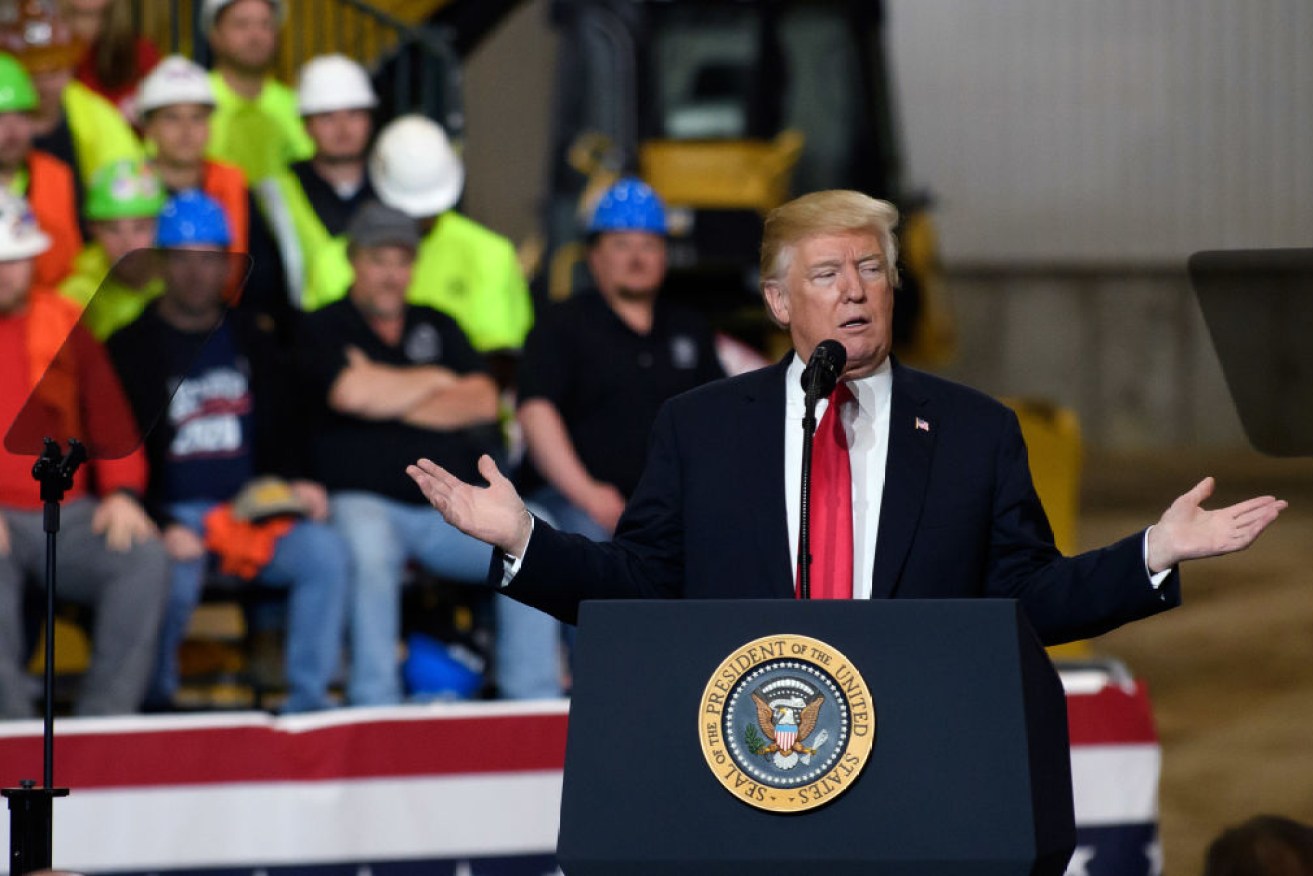Think Australia would dodge a China-US trade war? Think again


President Donald Trump's protectionism will hurt many of the workers who voted for him in 2016. Photo: Getty
Reports saying a protracted trade war between China and the US would only hurt Australia a little bit need to be handled with care.
Modelling released by global accounting firm KPMG on Tuesday showed that Australia’s economic growth would be reduced by 0.8 percentage points if the China-US tit-for-tat resulted in “a five percentage point increase in tariffs by all countries on all manufactured goods”.
That, says the report, would cost the equivalent of about 130,000 full-time jobs – not nice, but manageable.
The Australian economy would still be growing, but at 1.4 per cent rather than the current estimated rate of 2.2 per cent per annum.
In KPMG’s worst-case scenario – “a 10 percentage point increase in tariffs by all countries on all goods, primary and manufactured” – Australia could still expect positive growth, albeit at an anaemic 0.3 per cent per annum.
So if Australia would avoid recession, that’s not too bad, right?
Well it’s not that simple. The real problems arise when you look beyond our borders, because so many other nations would be ravaged.
The report states that even if its “least worst scenario” came to pass, economies such as the EU, UK and Canada would go into recession as trade volumes sagged.
Global financial flows would be interrupted, and we would not be immune from stock market tumbles that resulted.
In the real economy, Australia would be insulated to an extent by China’s ongoing demand for our hard commodities – mainly iron ore and coal.
However, former deputy director-general of the World Trade Organisation Andrew Stoler tells me other markets could be severely disrupted.
In food, for instance, if US exports to China slow as the new 25 per cent tariffs hit home, the surplus produce will be on world markets, hurting our exporters by pushing down prices everywhere else.
There are no winners. Many US farmers will be hurt by low prices; Chinese consumers will be hurt by higher prices and nations such as Australia will be collateral damage.
That’s even more so the case for the manufacturing base of our near neighbours such as Vietnam, the Philippines and Indonesia.
Their economies are important parts of China’s supply chains, so the more stuff China is exporting to the US and Europe, the more their citizens see their standards of living improve.
And the better our near neighbours do, the more money they have to spend on our exports and the better the resources they have to help with regional security, and issues such as seaborne refugees.
So saying Australia’s economy might not falter too much is not the full picture.
Mr Stoler worries that there is “no limit to how long a trade war could last” because “there is no doubt China will keep retaliating if [US President Donald] Trump goes ahead with all the things he says he’s planning”.
And he’s threatening plenty. “Look what he’s doing to the North American Free Trade Agreement [NAFTA], hurting his own neighbours,” Mr Stoler says.
US voters will get to send a message to their capricious President at the November mid-term elections, and we should all hope a loss of poll support dissuades him from the worst of setbacks he says he’s planning for the global economy.
After all, it’s just 10 years since the last serious setback began – the collapsing credit bubble known as the global financial crisis.
Just when we thought that recovery was maturing, the last thing we need is the Trump administration picking all that good work apart.








